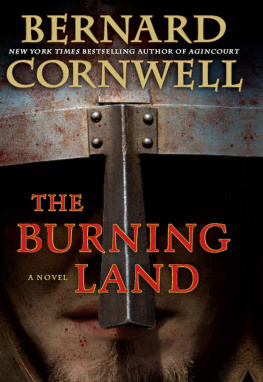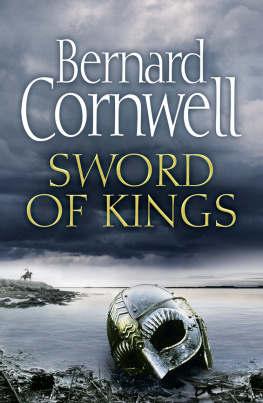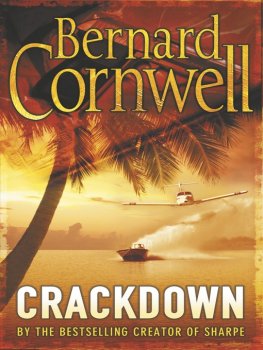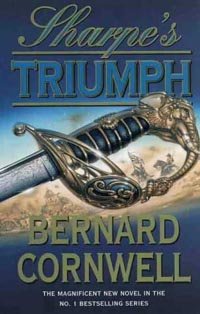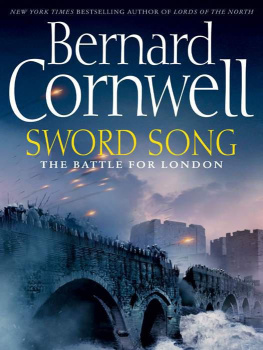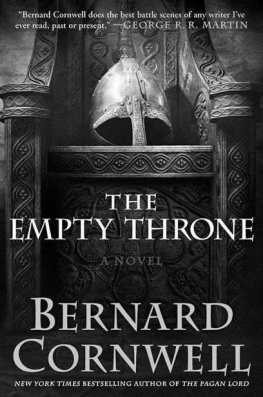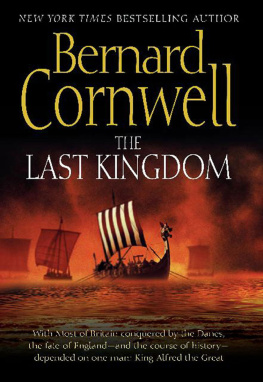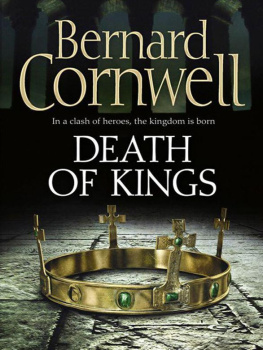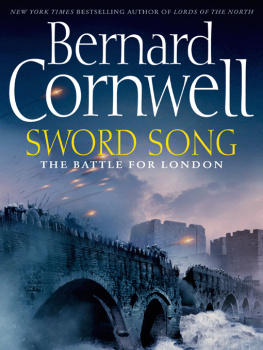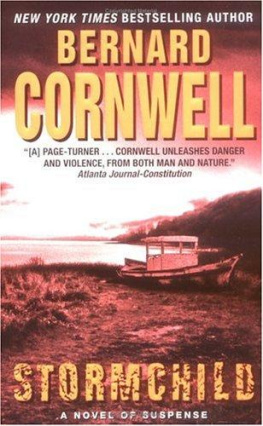Bernard Cornwell - The Burning Land: A Novel (Saxon Tales)
Here you can read online Bernard Cornwell - The Burning Land: A Novel (Saxon Tales) full text of the book (entire story) in english for free. Download pdf and epub, get meaning, cover and reviews about this ebook. year: 2010, genre: Art. Description of the work, (preface) as well as reviews are available. Best literature library LitArk.com created for fans of good reading and offers a wide selection of genres:
Romance novel
Science fiction
Adventure
Detective
Science
History
Home and family
Prose
Art
Politics
Computer
Non-fiction
Religion
Business
Children
Humor
Choose a favorite category and find really read worthwhile books. Enjoy immersion in the world of imagination, feel the emotions of the characters or learn something new for yourself, make an fascinating discovery.
- Book:The Burning Land: A Novel (Saxon Tales)
- Author:
- Genre:
- Year:2010
- Rating:5 / 5
- Favourites:Add to favourites
- Your mark:
- 100
- 1
- 2
- 3
- 4
- 5
The Burning Land: A Novel (Saxon Tales): summary, description and annotation
We offer to read an annotation, description, summary or preface (depends on what the author of the book "The Burning Land: A Novel (Saxon Tales)" wrote himself). If you haven't found the necessary information about the book — write in the comments, we will try to find it.
The Burning Land: A Novel (Saxon Tales) — read online for free the complete book (whole text) full work
Below is the text of the book, divided by pages. System saving the place of the last page read, allows you to conveniently read the book "The Burning Land: A Novel (Saxon Tales)" online for free, without having to search again every time where you left off. Put a bookmark, and you can go to the page where you finished reading at any time.
Font size:
Interval:
Bookmark:
The Burning Land
is for
Alan and Jan Rust
The spelling of place names in Anglo Saxon England was an uncertain business, with no consistency and no agreement even about the name itself. Thus London was variously rendered as Lundonia, Lundenberg, Lundenne, Lundene, Lundenwic, Lundenceaster and Lundres. Doubtless some readers will prefer other versions of the names listed below, but I have usually employed whichever spelling is cited in either the Oxford Dictionary of English Place-Names or the newer Cambridge Dictionary of English Place-Names for the years nearest or contained within Alfreds reign, 871899 AD, but even that solution is not foolproof. Hayling Island, in 956, was written as both Heilincigae and Hglingaigg. Nor have I been consistent myself; I have preferred the modern form Northumbria to Nor hymbralond to avoid the suggestion that the boundaries of the ancient kingdom coincide with those of the modern county. So this list, like the spellings themselves, is capricious.
scs Hill: Ashdown, Berkshire
scengum: Eashing, Surrey
thelingg: Athelney, Somerset
Beamfleot: Benfleet, Essex
Bebbanburg: Bamburgh Castle, Northumberland
Caninga: Canvey Island, Essex
Cent: Kent
Defnascir: Devonshire
Dumnoc: Dunwich, Suffolk (now mostly vanished beneath the sea)
Dunholm: Durham, County Durham
East Sexe: Essex
Eoferwic: York
Ethandun: Edington, Wiltshire
Exanceaster: Exeter, Devon
Farnea Islands: Farne Islands, Northumberland
Fearnhamme: Farnham, Surrey
Fughelness: Foulness Island, Essex
Grantaceaster: Cambridge, Cambridgeshire
Gleawecestre: Gloucester, Gloucestershire
Godelmingum: Godalming, Surrey
Hthlegh: Hadleigh, Essex
Haithabu: Hedeby, southern Denmark
Hocheleia: Hockley, Essex
Hothlege: Hadleigh Ray, Essex
Humbre: River Humber
Hwealf: River Crouch, Essex
Lecelad: Lechlade, Gloucestershire
Liccelfeld: Lichfield, Staffordshire
Lindisfarena: Lindisfarne (Holy Island), Northumberland
Lundene: London
Sfern: River Severn
Scaepege: Isle of Sheppey, Kent
Silcestre: Silchester, Hampshire
Sumorste: Somerset
Suthriganaweorc: Southwark, Greater London
Temes: River Thames
Thunresleam: Thundersley, Essex
Tinan: River Tyne
Torneie: Thorney Island, an island that has disappearedit lay close to the West Drayton tube station near Heathrow Airport
Tuede: River Tweed
Uisc: River Exe, Devonshire
Wiltunscir: Wiltshire
Wintanceaster: Winchester, Hampshire
Yppe: Epping, Essex
Zegge: Fictional Frisian island
Not long ago I was in some monastery. I forget where except that it was in the lands that were once Mercia. I was traveling home with a dozen men, it was a wet winters day, and all we needed was shelter, food, and warmth, but the monks behaved as though a band of Norsemen had arrived at their gate. Uhtred of Bebbanburg was within their walls and such is my reputation that they expected me to start slaughtering them. I just want bread, I finally made them understand, cheese if you have it, and some ale. I threw money on the hall floor. Bread, cheese, ale, and a warm bed. Nothing more!
Next morning it was raining like the world was ending and so I waited until the wind and weather had done their worst. I roamed the monastery and eventually found myself in a dank corridor where three miserable-looking monks were copying manuscripts. An older monk, white-haired, sour-faced and resentful, supervised them. He wore a fur stole over his habit, and had a leather quirt with which he doubtless encouraged the industry of the three copyists. They should not be disturbed, lord, he dared to chide me. He sat on a stool beside a brazier, the warmth of which did not reach the three scribblers.
The latrines havent been licked clean, I told him, and you look idle.
So the older monk went quiet and I looked over the shoulders of the ink-stained copyists. One, a slack-faced youth with fat lips and a fatter goiter on his neck, was transcribing a life of Saint Ciaran, which told how a wolf, a badger, and a fox had helped build a church in Ireland, and if the young monk believed that nonsense then he was as big a fool as he looked. The second was doing something useful by copying a land grant, though in all probability it was a forgery. Monasteries are adept at inventing old land grants, proving that some ancient half-forgotten king has granted the church a rich estate, thus forcing the rightful owner to either yield the ground or pay a vast sum in compensation. They tried it on me once. A priest brought the documents and I pissed on them, and then I posted twenty sword-warriors on the disputed land and sent word to the bishop that he could come and take it whenever he wished. He never did. Folk tell their children that success lies in working hard and being thrifty, but that is as much nonsense as supposing that a badger, a fox, and a wolf could build a church. The way to wealth is to become a Christian bishop or a monasterys abbot and thus be imbued with heavens permission to lie, cheat, and steal your way to luxury.
The third young man was copying a chronicle. I moved his quill aside so I could see what he had just written. You can read, lord? the old monk asked. He made it sound like an innocent inquiry, but the sarcasm was unmistakable.
In this year, I read aloud, the pagans again came to Wessex, in great force, a horde as had never been seen before, and they ravaged all the lands, causing mighty distress to Gods people, who, by the grace of Our Lord Jesus Christ, were rescued by the Lord thelred of Mercia who came with his army to Fearnhamme, in which place he did utterly destroy the heathen. I prodded the text with a finger. What year did this happen? I asked the copyist.
In the year of our Lord 892, lord, he said nervously.
So what is this? I asked, flicking the pages of the parchment from which he copied.
They are annals, the elderly monk answered for the younger man, the Annals of Mercia. That is the only copy, lord, and we are making another.
I looked back at the freshly written page. thelred rescued Wessex? I asked indignantly.
It was so, the old monk said, with Gods help
God? I snarled. It was with my help! I fought that battle, not thelred! None of the monks spoke. They just stared at me. One of my men came to the cloister end of the passageway and leaned there, a grin on his half-toothless face. I was at Fearnhamme! I added, then snatched up the only copy of the Annals of Mercia and turned its stiff pages. thelred, thelred, thelred, and not a mention of Uhtred, hardly a mention of Alfred, no thelfld, just thelred. I turned to the page which told of the events after Fearnhamme. And in this year, I read aloud, by Gods good grace, the lord thelred and the theling Edward led the men of Mercia to Beamfleot where thelred took great plunder and made mighty slaughter of the pagans. I looked at the older monk. thelred and Edward led that army?
So it is said, lord. He spoke nervously, his earlier defiance completely gone.
I led them, you bastard, I said. I snatched up the copied pages and took both them and the original annals to the brazier.
No! the older man protested.
Theyre lies, I said.
He held up a placatory hand. For forty years, lord, he said humbly, those records have been compiled and preserved. They are the tale of our people! That is the only copy!
Theyre lies, I said again. I was there. I was on the hill at Fearnhamme and in the ditch at Beamfleot. Were you there?
I was just a child, lord, he said.
He gave an appalled shriek when I tossed the manuscripts onto the brazier. He tried to rescue the parchments, but I knocked his hand away. I was there, I said again, staring at the blackening sheets that curled and crackled before the fire flared bright at their edges. I was there.
Font size:
Interval:
Bookmark:
Similar books «The Burning Land: A Novel (Saxon Tales)»
Look at similar books to The Burning Land: A Novel (Saxon Tales). We have selected literature similar in name and meaning in the hope of providing readers with more options to find new, interesting, not yet read works.
Discussion, reviews of the book The Burning Land: A Novel (Saxon Tales) and just readers' own opinions. Leave your comments, write what you think about the work, its meaning or the main characters. Specify what exactly you liked and what you didn't like, and why you think so.

